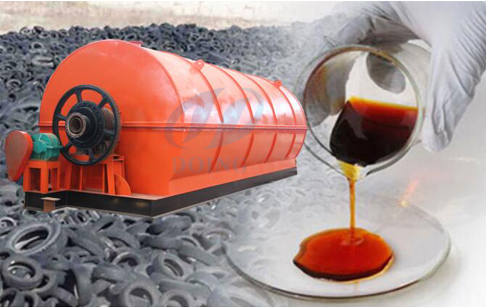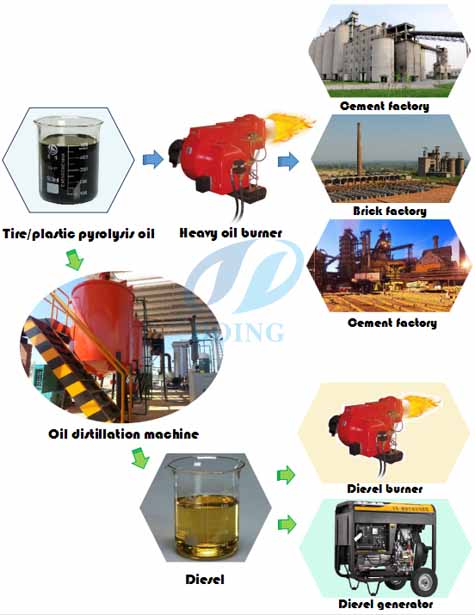
Tyre pyrolysis oil plant
Around the world, there are initiatives to replace gasoline and diesel fuel due to the impact of fossil fuel crisis, hike in oil price and stringent emission norms. Millions of dollars are being invested in the search for alternative fuels. On the other hand, the disposal of waste tyres from automotive vehicles is becoming more and more complex.
Waste to energy is the recent trend in the selection of alternate fuels. Fuels like alcohol, biodiesel, liquid fuel from plastics etc are some of the alternative fuels for the internal combustion engines. In order to prevent waste rubber and in particular discarded automobile tyres from damaging the environment, it is highly desirable to recycle this material in a useful manner. However, the total quantity of tyres currently recycled in a given year (excluding reuse, retreading, or combustion) is less than 7% of the annual tyre generation rate in the world.

Tyre pyrolysis oil application
The use of Tyre pyrolysis oil as a substitution to diesel fuel is an opportunity in minimizing the utilization of the natural resources. Several research works have been carried out on the pyrolysis of waste automobile tyres. Pyrolysis is the process of thermally degrading a substance into smaller, less complex molecules. Pyrolysis produces three principal products: such as pyrolytic oil, gas and char. The quality and quantity of these products depend upon the reactor temperature and design. In the Pyrolysis process, larger hydrocarbon chains break down at certain temperatures in the absence of oxygen that gives end products usually containing solids, liquids and gases. If the temperature is maintained at 550 ºC, the main product is a liquid, which could be a mixture of various hydrocarbons depending on the initial composition of the waste material. At temperatures above 700 ºC, the gas becomes the primary product due to further cracking of liquids. The gas is basically composed of CH 4 , with C 2 H 6 , C 2 H 4 , C 2 H 2 , and other gaseous hydrocarbons however in lesser quantities. The quality and quantity of these products depend upon the reactor temperature and design. In the present work pyrolysis oil from waste tyres by vaccum pyrolysis is obtained. Though solid carbon black and pyrolysis gas are also obtained, the pyrolysis process will be much more prominent to produce liquid Use of tyre pyrolysis oil in diesel engines







